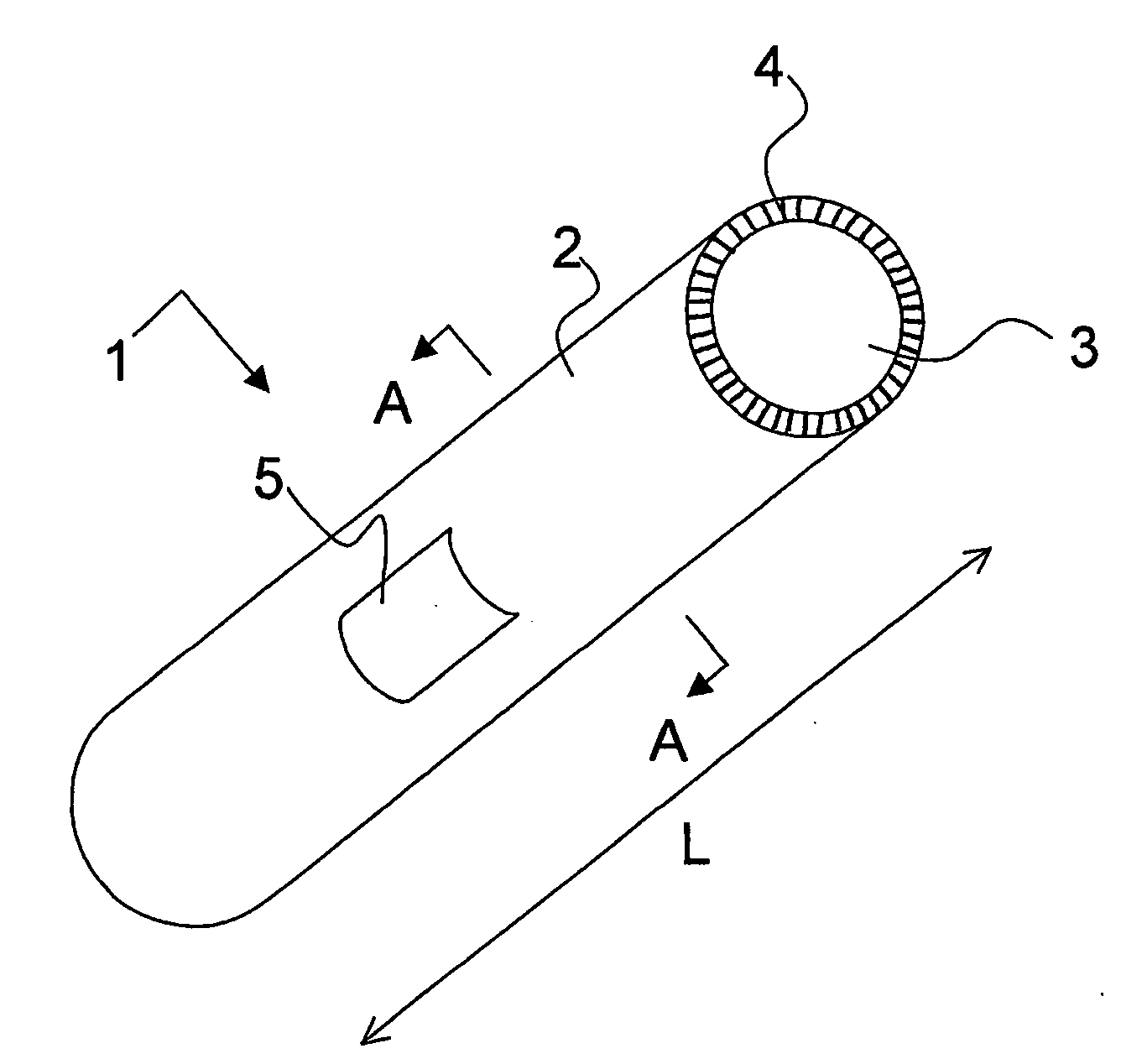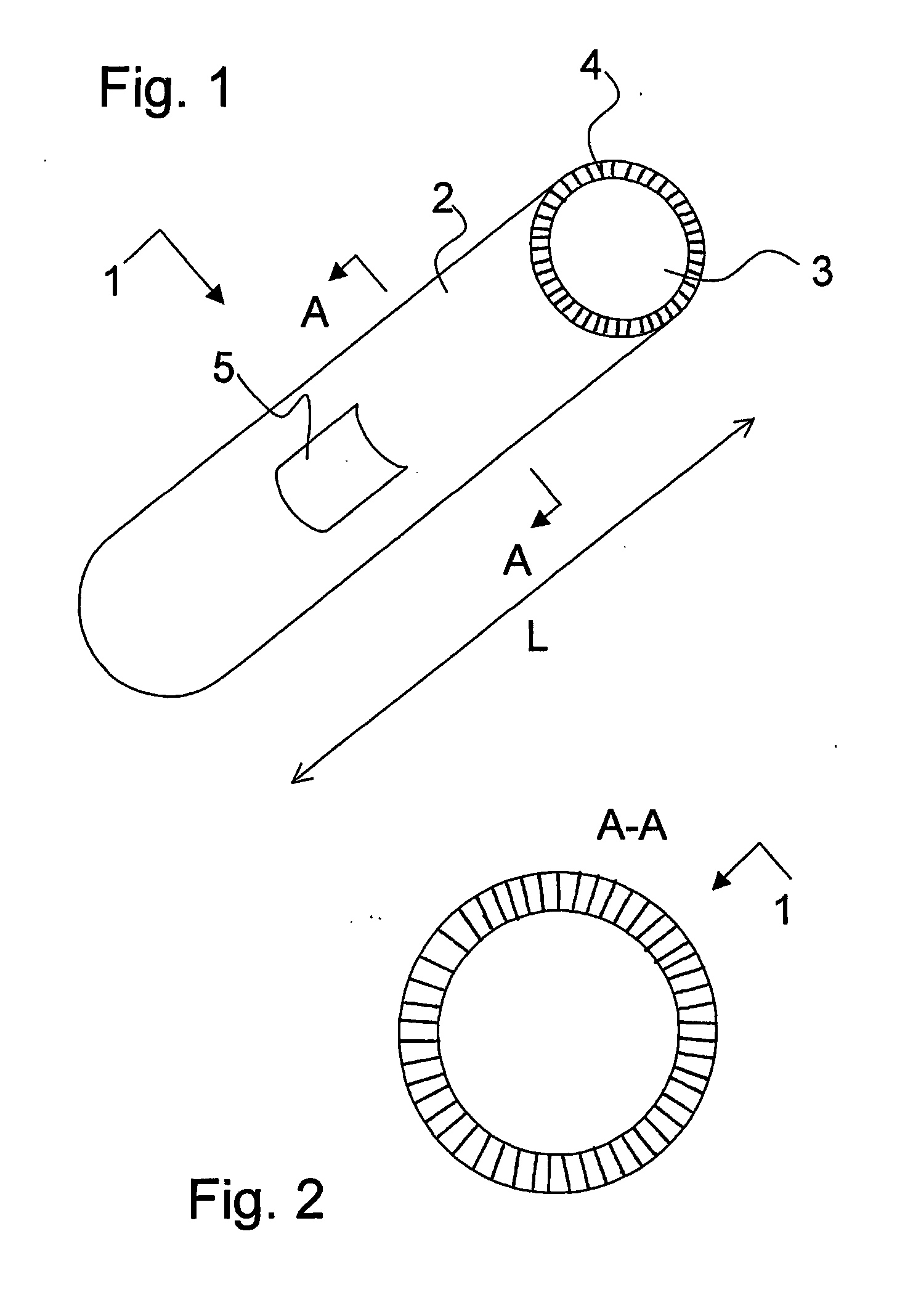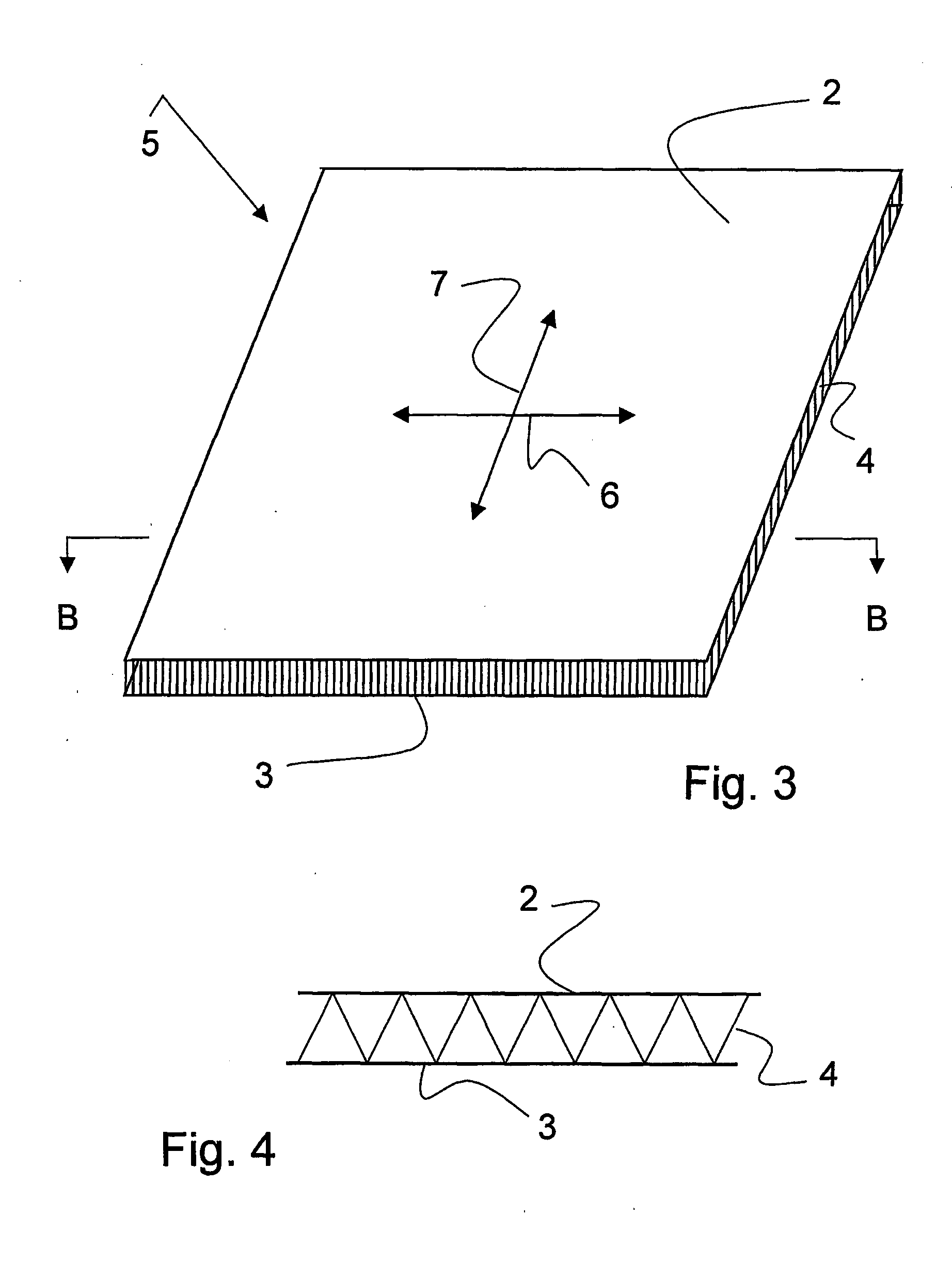Tubular spacer fabric
a technology of tubular spacer fabric and weftknitting, which is applied in the field of weftknitted tubular spacer fabric, can solve the problems of skin maceration, inability to breathe, and discomfort for wearers, and achieve the effect of avoiding or at least substantially reducing the risk of skin maceration
- Summary
- Abstract
- Description
- Claims
- Application Information
AI Technical Summary
Benefits of technology
Problems solved by technology
Method used
Image
Examples
Embodiment Construction
[0071]The seamless tubular spacer fabric 1 is shown schematically in FIG. 1. The weft-knitted seamless tubular spacer fabric 1 for use in orthopaedic products comprises a first outer layer 2, a second outer layer 3, and an intermediate spacer layer 4 integrated with said first 2 and second outer 3 layers.
[0072]According to the shown embodiment the first outer layer 2 is the outer surface of the seamless tubular spacer fabric 1 and the second outer layer 3 is the inner surface of the seamless tubular spacer fabric.
[0073]According to the invention the circumference of the seamless tubular spacer fabric 1 is less than 1000 mm, preferably between 50 mm and 785 mm.
[0074]The seamless tubular spacer fabric 1 is in this embodiment shown with a length L. During manufacturing of the seamless tubular spacer fabric the length L may be predetermined dependent on the specific application. During other applications the manufactured seamless tubular spacer fabric may be wound endlessly around for i...
PUM
 Login to View More
Login to View More Abstract
Description
Claims
Application Information
 Login to View More
Login to View More - R&D
- Intellectual Property
- Life Sciences
- Materials
- Tech Scout
- Unparalleled Data Quality
- Higher Quality Content
- 60% Fewer Hallucinations
Browse by: Latest US Patents, China's latest patents, Technical Efficacy Thesaurus, Application Domain, Technology Topic, Popular Technical Reports.
© 2025 PatSnap. All rights reserved.Legal|Privacy policy|Modern Slavery Act Transparency Statement|Sitemap|About US| Contact US: help@patsnap.com



